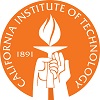Job Description
Major
Geochemistry is the study of the chemical and structural composition and evolution of Earth and its component parts, including the atmosphere, hydrosphere, crust, mantle, and core, as well as extraterrestrial matter, such as meteorites and comets, other planets, the sun, and distant stars. It concerns itself with the distribution and migration of elements within the Earth and its atmosphere. Since most geological processes involve chemical reactions, geochemistry and geochemical data are also used to explain many of these processes in other areas of the geosciences.
At Caltech GPS, geochemistry has been used since 1952 to study the distribution of chemical elements in the Earth and the solar system; to develop methods to date earth and solar system processes; to discover and observe the chemical composition of terrestrial and extraterrestrial materials; and to study chemical reactions in the interior of the Earth as well as its surface and in the solar system outside of the Earth.
Minor
The Geochemistry minor, or a a general GPS minor, is intended for non-GPS undergraduates to supplement a major degree with knowledge of earth and planetary science.
Geochemistry Coursework at a Glance
Ge/Ch 128. Cosmochemistry. Examination of the chemistry of the interstellar medium, of protostellar nebulae, and of primitive solar-system objects with a view toward establishing the relationship of the chemical evolution of atoms in the interstellar radiation field to complex molecules and aggregates in the early solar system that may contribute to habitability. Emphasis will be placed on identifying the physical conditions in various objects, timescales for physical and chemical change, chemical processes leading to change, observational constraints, and various models that attempt to describe the chemical state and history of cosmological objects in general and the early solar system in particular.


